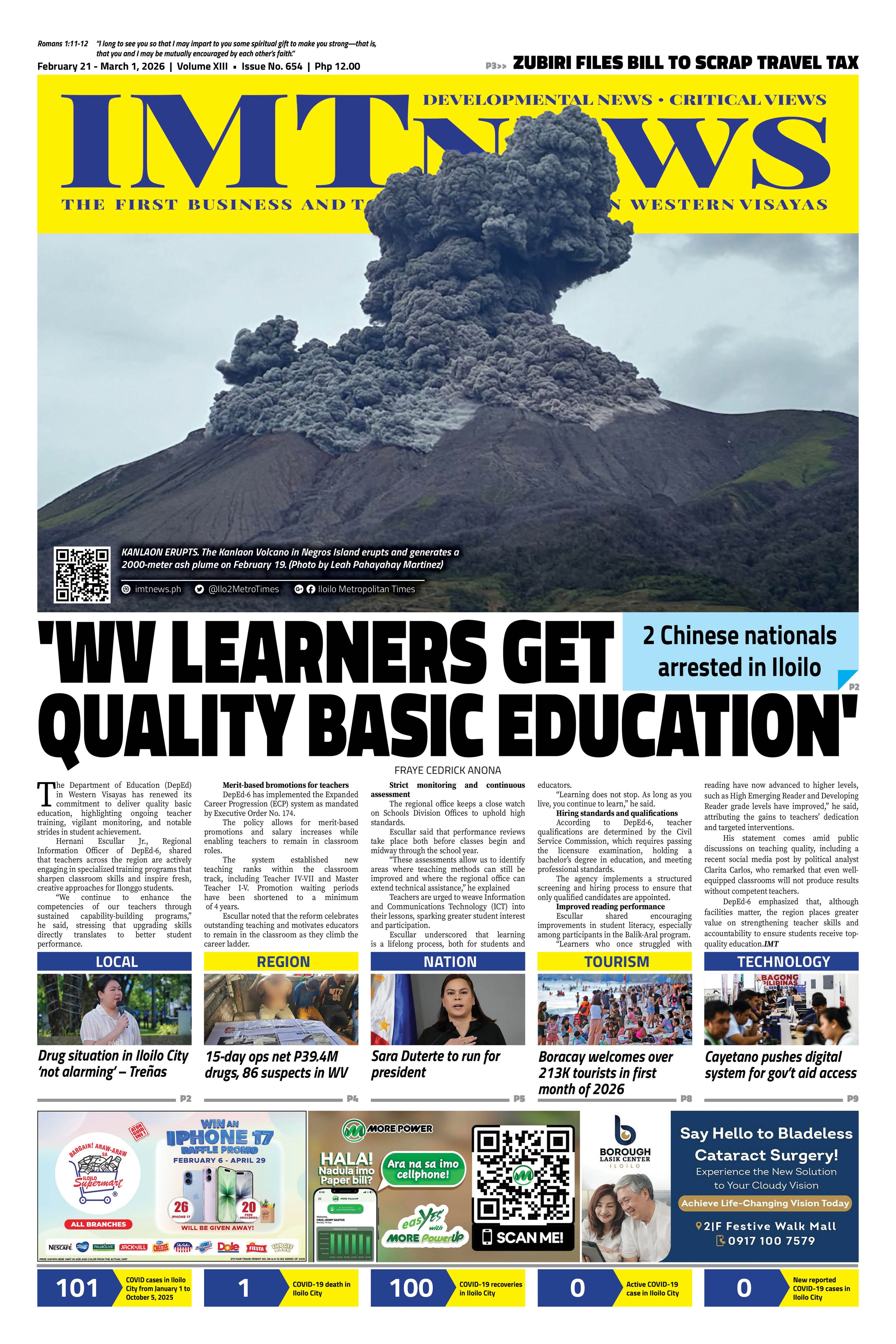Do we still need more libraries in Iloilo? The answer is a resounding yes. But this seemingly simple question deserves a deeper and more thoughtful examination. It’s not just a matter of quantity, we don’t simply need more libraries. What we need are better libraries. We need spaces that respond meaningfully to the needs of our communities, especially to young learners navigating a complex and rapidly changing world. Iloilo needs to reimagine what a library can be: a vibrant, inclusive, and forward-thinking institution at the center of learning, civic engagement, and cultural life.
As someone who has spent countless hours in local libraries, I speak with a mix of sadness and urgency when I say that many of these spaces are slowly fading into irrelevance. Too many of them have become static and outdated, functioning primarily as quiet storage rooms for books. They are no longer places where knowledge is lived, shared, and actively explored. Instead, they remain locked in time, both physically and conceptually—lagging behind not only in infrastructure but, more critically, in vision.
Many of our libraries are falling behind when it comes to acquiring new and relevant books, adapting to digital technologies, or offering programs that truly engage the public. What’s more troubling is that they often exist on the periphery of our cultural and educational landscape, unnoticed by a younger generation that sees little value in visiting them. For many young people, libraries no longer feel welcoming, inspiring, or even necessary.
But this is not a failure of the library as an idea. Rather, it reflects a failure of investment, imagination, and political will.
Around the world, libraries are experiencing a quiet revolution. In cities such as Helsinki, Medellín, and Singapore, libraries have been transformed into dynamic community spaces. These modern libraries offer much more than access to books, they provide digital literacy programs, art workshops, music labs, forums for public dialogue, and inclusive services for all ages and backgrounds. They serve as sanctuaries for the curious, the marginalized, and the hopeful. They are places where people come together to learn, connect, and grow. Why should Iloilo be any different? Why can’t we dream big for our own libraries?
The gap we face is not a lack of dreams or good intentions. It is a gap rooted in insufficient policy, limited funding, lack of training, and weak institutional support. Many local librarians, committed, hardworking individuals continue to serve under difficult circumstances. They are often under-equipped, underpaid, and overlooked. Opportunities for professional development are scarce. Initiatives such as community-led programs, creative reading campaigns, or interactive storytelling sessions are more the exception than the norm.
It is deeply unfair to expect our librarians to create transformative learning spaces when they are not provided with the tools, resources, or recognition they need to thrive.
We need a profound shift in perspective. Libraries should no longer be seen merely as book warehouses. They must be understood as living, breathing institutions that nurture critical thinking, empathy, and civic imagination. They should be spaces where young people can access information and also engage in thoughtful conversations, explore their identities, and participate in shaping their communities.
This is a challenge that demands collective effort from local government units, schools and universities, cultural institutions, and the national government. Strengthening our libraries should not be seen as an afterthought or a luxury. It is central to building an inclusive, resilient, and educated society. If we truly believe that education is the backbone of national development, then we must ask ourselves why libraries continue to be among the most neglected parts of our public infrastructure.
To our policymakers: I urge you to invest not just in constructing library buildings, but in building the capacity of the people who bring those spaces to life. Support our librarians. Provide training, access to technology, and funding for programs that promote creativity, community engagement, and lifelong learning.
To civil society and the private sector: I encourage you to view libraries as essential partners in nation-building. Collaborate with them. Sponsor programs. Donate books, equipment, or time. Treat these institutions as the public assets they are.
And to the librarians: Continue to advocate for your profession and your patrons. Seek out collaboration, push for innovation, and never lose sight of the transformative role you play in our society. Now more than ever, your work matters.
So, do we still need libraries in Iloilo? Absolutely. But the more important question is this: are we ready to fight for the kind of libraries our communities deserve?
If we are bold enough to embrace this challenge, the libraries of Iloilo can become more than they have ever been. They can be spaces of hope, memory, resistance, and transformation. But that future depends on the choices we make today—guided by purpose, fueled by passion, and grounded in our belief in the power of learning and imagination.
Noel Galon de Leon is a writer and educator at University of the Philippines Visayas, where he teaches in both the Division of Professional Education and U.P. High School in Iloilo. He serves as an Executive Council Member of the National Commission for Culture and the Arts-National Committee on Literary Arts.


![[EDITORIAL] Tala wish](https://www.imtnews.ph/wp-content/themes/Extra/images/post-format-thumb-text.svg)




